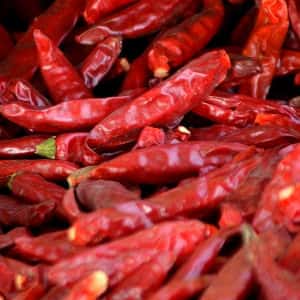
Hot peppers are a staple in our kitchen. We are always pleased when we read about their benefits. Often, research focuses on the topical application of this substance to ease pain (Chung & Campbell, Pharmaceuticals, Nov. 1, 2016), including peripheral neuropathy (Moon et al, Pain Physician, Feb. 2017) or burning mouth syndrome (Liu et al, Oral Diseases, March 1, 2017). Chili peppers in the diet may even have metabolic and cardiac advantages (Sun et al, Nutrients, April 25, 2016). But are there downsides to eating a lot of hot peppers?
Will Hot Peppers Ruin Your Taste Buds?
Q. I have been a spicy hot foodie for years. Tears and sweat, good!
However, some years ago I heard that routinely eating hot peppers could dull the taste buds over time, and I consequently reduced my heat level somewhat. Is there any research on this?
A. The research is clear that this is true if you are a young rat (Omelian et al, Chemosensory Perception, Sep. 2016). Scientists exposed rat pups and adult rats to capsaicin (the essence of hot peppers) for 40 days. The adults had no changes in their taste buds, but the youngsters exposed to capsaicin had fewer taste buds when they matured.
We don’t know how well this research applies to humans. Your idea of moderation seems sensible, however.
A Better Microbiome?
Eating hot peppers appears to alter gut microbes in a favorable way, though the microbiome a person hosts to begin with has an impact on how beneficial this dietary exposure is (Kang et al, Journal of Clinical Endocrinology and Metabolism, Dec. 2016).
If you are interested in the health benefits of chili peppers, turmeric, ginger and other spices, you may be interested in our recent book, Spice Up Your Health: How Everyday Kitchen Herbs & Spices Can Lengthen & Strengthen Your Life.

